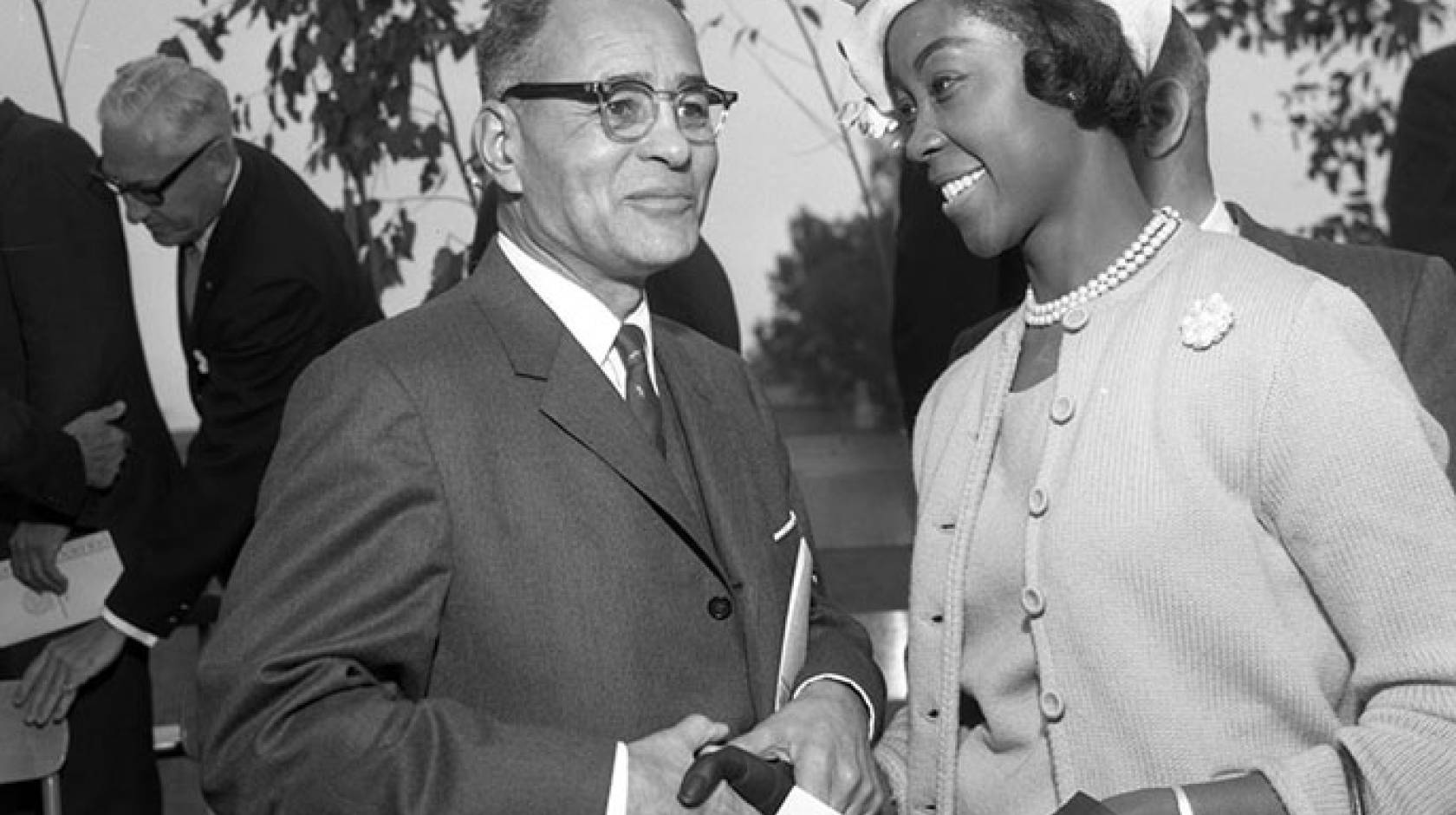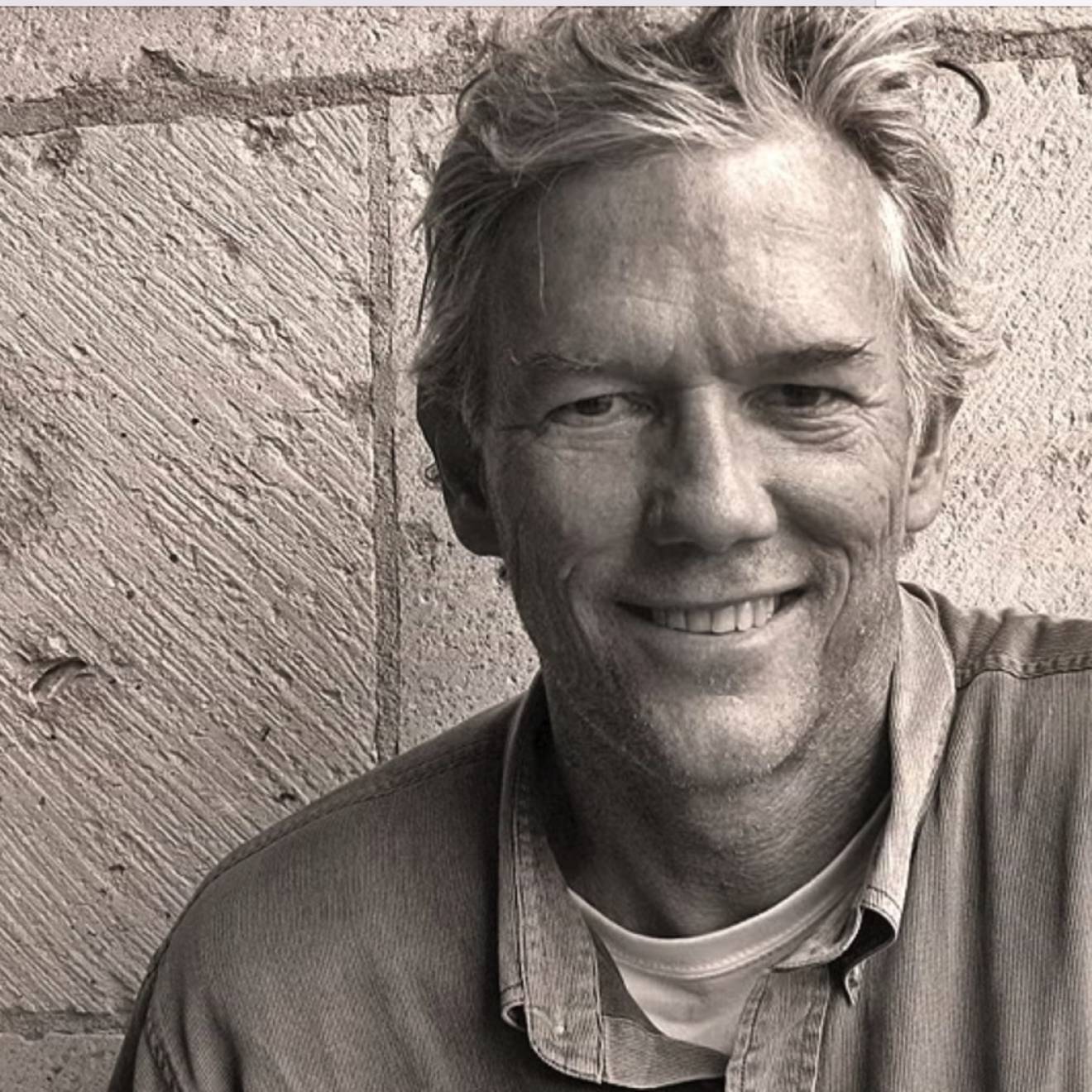Alex Morales, UC Newsroom

Ralph Bunche was a man of many firsts. He was the first African American valedictorian at UCLA. The first African American in the country to receive a Ph.D. in political science. And the first African American to win the Nobel Peace Prize. Bunche is considered the “Father of Peacekeeping” for negotiating an end to the first Arab-Israeli war while working at the United Nations.

Credit: UCLA Library Special Collections, Charles E. Young Research Library
In 1949, Bunche stood in his hotel room on the Greek island of Rhodes with members of the Israeli delegation and the Egyptian delegation. Two groups of people, sharing a room, that hadn’t been able to reach a resolution over the control of Palestine in more than 30 years. Now, in the midst of the first Arab-Israeli War, Bunche had been sent by the United Nations to end the conflict. He knew it wouldn’t be easy, but was determined to find a resolution.
How did Bunche crack the code for making peace? To understand his impact, we have to rewind a bit. Born to humble beginnings in Detroit, Michigan, Bunche was raised by his grandmother after his parents passed away. Early on, it was clear he was someone to watch. In high school, he was known as an expert debater and was named his class valedictorian. In 1923, he enrolled at UCLA, supporting himself with an athletic scholarship and a janitorial job. Bunche graduated in 1927, with a degree in international relations, and was once again the class valedictorian.
His graduation speech revealed glimpses of the career he would have as a peacemaker: “The future peace and harmony of the world are contingent upon the ability, yours and mine, to effect a remedy.”
There was no stopping him. He went on to Harvard for graduate studies in political science, and from there he taught at both Howard and Harvard. While at Howard, he became one of the leaders of a group of Black intellectuals known as the “Young Turks.” The Young Turks’ perspective on race set them apart. They argued that issues of “class, not race” were key to solving the so-called “Negro problem.” This line of thinking was later adopted by the civil rights activists of the 1960s, including Martin Luther King, Jr.
In a shift away from the world of academia, he joined the U.S. State Department as an advisor on the future of colonial territories in 1944. Two years later, Bunche was at the United Nations. From June of 1947 to August of 1949, he worked on the assignment that would serve as a defining moment in his history and the world’s: the confrontation between Arabs and Jews in Palestine.
“There’s a cat and mouse game going on here between each of them and me,” Bunche said of the conflict. “They would be happy if I would terminate negotiations and just relieve them of any responsibility. But I’m not going to take that rap.”

Credit: UC Library: A Centenary Celebration of Ralph J. Bunche
In 1949, peacekeeping was a very new concept and Bunche was determined to show that it wasn’t just a fad adopted by the U.N. — he wanted to prove it had long-lasting power. While he stood in his bedroom in Rhodes, with members of both the Israeli delegation and the Egyptian delegation, he revealed two sets of memorial plates bearing the name of each negotiator. He told the negotiators that once they signed the armistice agreement, they’d each get one of the plates as a souvenir. But if they didn’t reach an agreement, he’d break the plates over their heads. He was met with laughter from both sides, but ultimately his plan worked — they signed the agreement.

Credit: UCLA
His achievement in reaching the 1949 armistice agreement was the reason he received the Nobel Peace Prize a year later. Though they were original, the plates weren’t his secret ingredient for peacekeeping. Bunche believed there was no human problem that couldn’t eventually be solved. He had great empathy and was interested in improving the lives of ordinary people. According to Sir Brian Urquhart, former undersecretary general at the U.N. and one of Bunche’s colleagues, Bunche was an incredibly good listener. All these traits, along with his own unique creativity and humor, truly made him the “Father of Peacekeeping,” and his pioneering methods are still used today.

